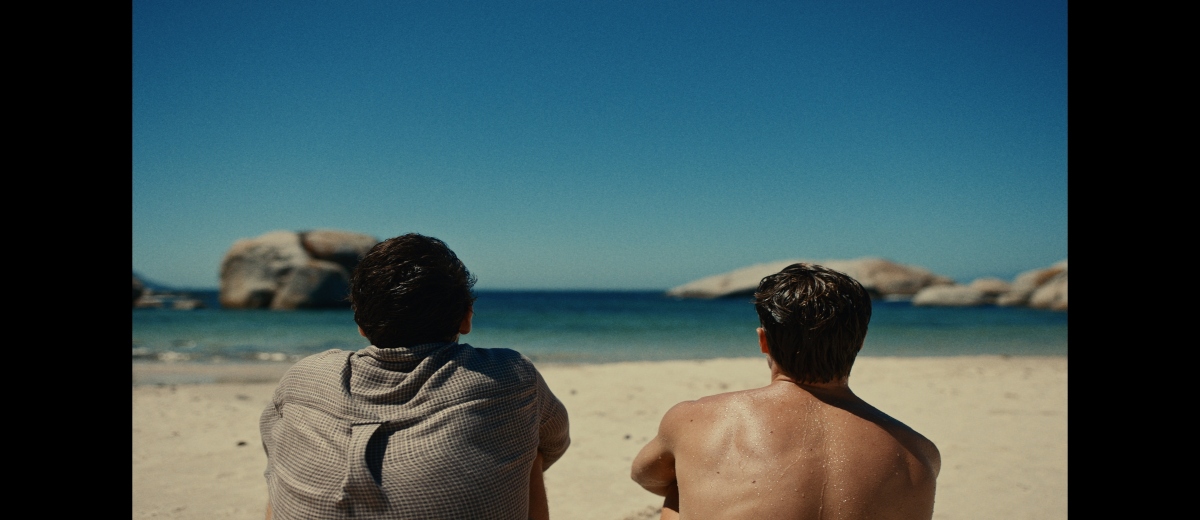Moffie
by Samantha Harden
“Moffie” is a derogatory term used in South Africa meaning an “effeminate homosexual man.” Moffie is also the name of the South African-British biographical war film.
The film was written and directed by Oliver Hermanus. With help from his co-writer Jack Sidey, the two created a love story that encapsulates struggles, racism and homophobia. You feel stressed right from the beginning.
The year is 1981, South Africa’s white minority government is entangled in conflicts at its borders with communist-led Angola. All white men between the ages of 17 and 60 must complete two years of mandatory military service.
Nicholas Van der Swart (Kai Luke Brummer) was drafted into South Africa’s military, but he knows he is different from the other men serving. Another recruit develops an intimate relationship with Van der Swart and they realize that they are both in danger.
This is just an incredible performance by Brummer. You could feel his emotions, the worry and the sadness and most of all, fear. Throughout the movie you rarely saw even the slightest smile.
The first scene begins with suspenseful music that feels as though it belongs in a horror movie. Of course for young Nick, it is a horror movie.
But once Nick meets Dylan Stassen (Ryan de Villiers) and begins to fit in (at least a little), the music changes to classical opera. Later the music makes another change, and then another, and another. Braam du Toit’s score continues to change throughout the film to match Nick’s moods, an excellent detail.
Moffie not only has an aesthetically pleasing score but it is an aesthetic pleasure of the highest order, on nearly every level.
The movie is so bright and beautiful even if the story is heartbreaking. In a flashback we see young Nick at the public pool with his parents. The camera follows him underwater and for a moment, Nick is happy and carefree.
We see Nick again underwater, but this time he isn’t a carefree young child anymore. Now Nick is a soldier in the South African military and he just lost a friend. The world has been cruel to Nicholas Van der Swart, Moffie captured that cruelty.



